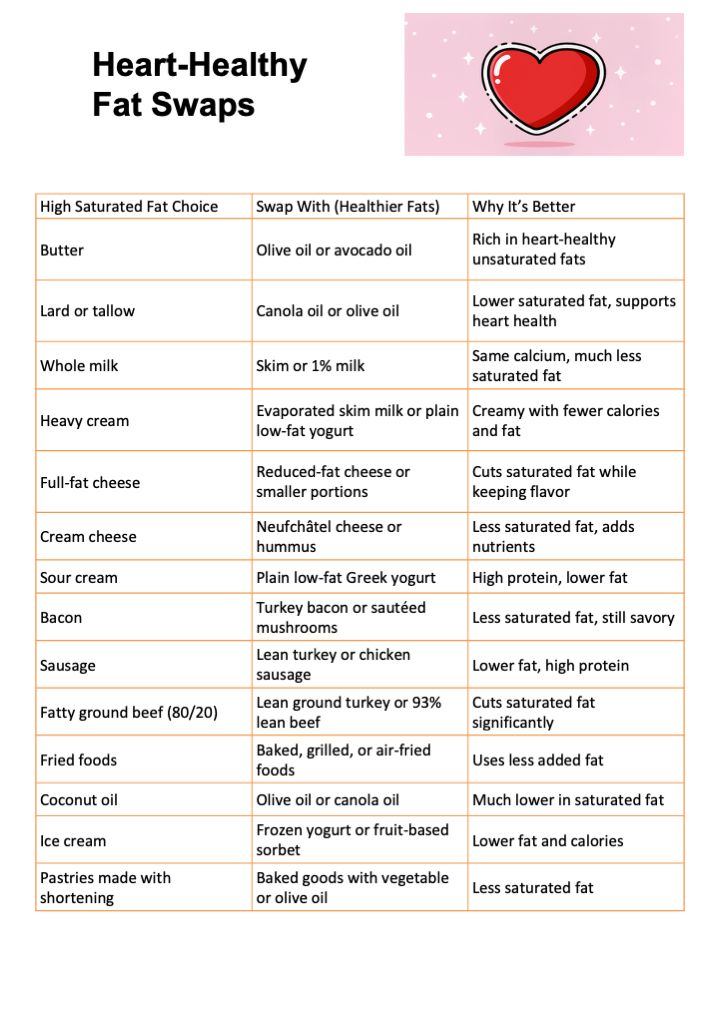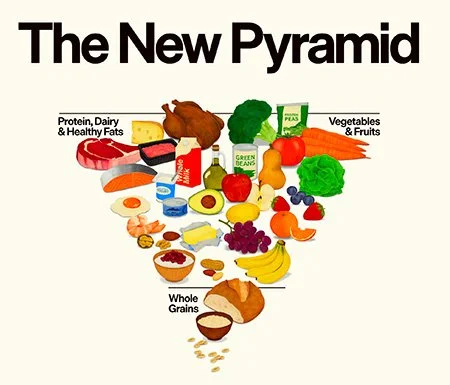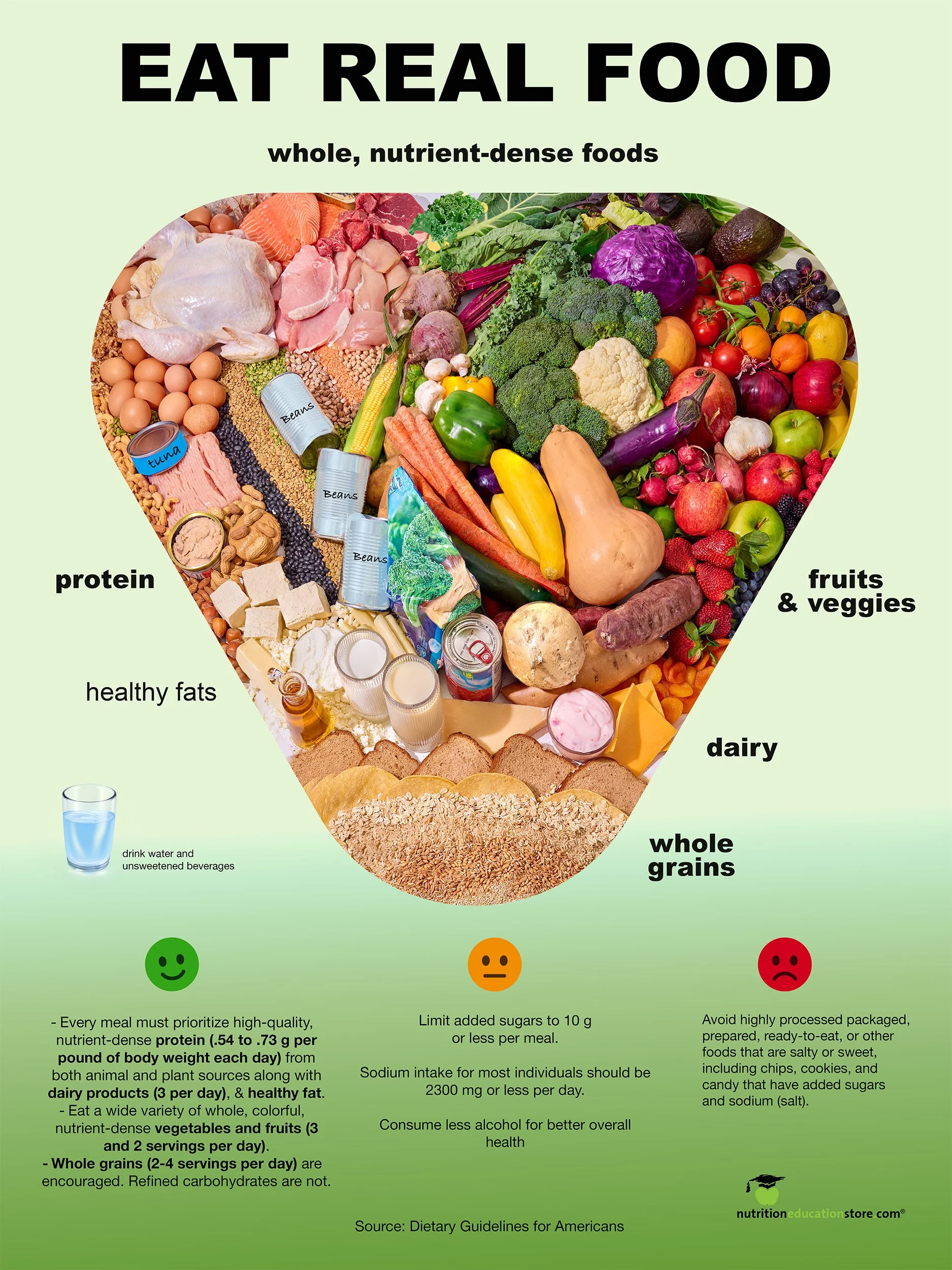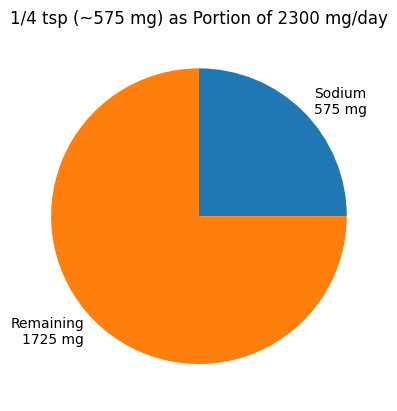Member-Only Articles
Tip: Look at the bottom of each article for premium-member tools to print, make a PDF, email and translate each article.
Researchers Discover a Safer Way to Make Cells Burn More Calories

Storing Fresh Herbs
Fresh herbs add wonderful flavor, color, and a bright finishing touch to meals — but they can wilt quickly if not stored properly. With a few simple tips, you can keep herbs fresh longer and reduce food waste.

Heart Healthy Fat Swaps

Food Groups for the Heart
The new year brings fresh goals and renewed resolutions. Along with that, the U.S. government has released the updated Dietary Guidelines for Americans, 2025–2030, bringing back a modernized food pyramid to replace MyPlate, which had guided eating habits since 2011. The overall message is simple and powerful: focus on real, whole foods and limit ultra-processed products. Let’s take a look at the key science-supported recommendations.

Vegetables In Season for February
Eating seasonal vegetables means better flavor, better value, and often better nutrition. In February, many hearty winter vegetables are at their peak. Roasting winter vegetables at 400°F with olive oil and herbs brings out natural sweetness and makes them extra delicious.

Saturated Fat Handout and The Case for the New Dietary Guidelines Committee Recommendations
I want to make the case for the Dietary Guidelines—by helping people understand what they have offered, consistently and over time. Right now, you have the public’s attention. This is the moment to use it well.

The New 2026 Dietary Guidelines Are Here: References and Need to Know
The U.S. federal government has released the 2025–2030 Dietary Guidelines for Americans, marking one of the most significant updates to national nutrition guidance in decades. These Guidelines — available through realfood.gov and the official Dietary Guidelines portal — put an emphasis on whole, nutrient-dense foods and offer a clear framework for helping people make healthier choices every day.

The New Food Pyramid—Think Before You Eat
Dietitian’s review of “The New Pyramid”

Drop the Dietary Acid and Drop the Pounds
Think of Dietary Acid Load (DAL) as a chemistry experiment happening inside your body. Every food you eat is either "acid-forming" or "base-forming" (alkaline).
Here is how it works in three simple points:
The Balance: Most Western diets are heavy on acid-forming foods like meat, cheese, and processed grains. To stay healthy, your body needs a balance provided by base-forming foods, specifically fruits and vegetables.
The Kidney Connection: When you eat too much acid-forming food, your kidneys have to work overtime to flush that acid out. Over time, this "acid overload" can lead to a state called low-grade acidosis.
The Health Impact: Staying in an acidic state is linked to serious long-term issues, including weaker bones and muscles, high blood pressure, and kidney strain.
The Bottom Line
To keep your internal chemistry in check, treat your plate like a scale: add more fruits and vegetables to balance out the meats and grains.

Even Just One Drink a Day May Raise Risk for Oral Cancer
Even one drink a day may be too much if you want to avoid the risk for oral cancer. Let’s look at the research.

Try Dry January
Dry January means taking a break from alcohol for the month of January to reset habits, notice how your body feels, and start the year with intention. You don’t need perfection—just curiosity.

The Whole Milk for Healthy Kids Act
Here is the scoop on various types of milk and the whole milk for healthy kids act.

Winter Meal Planning
Winter meals don’t need to be heavy to be satisfying. By planning ahead and embracing seasonal ingredients, you can stay energized and nourished while savoring the cozy flavors of the season. A little structure goes a long way: prepare staples in batches, stock your pantry, and mix and match components to make winter cooking feel effortless—and delicious.

How to Consume Less Salt/Sodium
Here are a few easy steps to help consumers lower their sodium intake.

3 Enjoyable New Year’s Resolutions for Big Health Impact
As a new year rolls in, everyone always likes to think about what they can do differently next year. Often, these resolutions include health.

A Seed of Truth
Seed oils have been demonized by politicians and health influencers alike for the past several months. But recent research suggests switching to beef tallow for French fries may have been done a bit prematurely.

A Touch of Salt Can Affect Liver Health
Regularly salting your food not only may impact your type 2 diabetes and cardiovascular disease, new research suggests it’s also linked with higher risks for liver diseases, including metabolic dysfunction-associated steatotic liver disease (MASLD), cirrhosis, and hepatocellular carcinoma. Ironically, this link was stronger among nonsmokers, current alcohol consumers, and those without diabetes or with a lower BMI. Body composition (higher body fat) also raised the risk. 1

Give the Gift of Health: Delicious & Homemade Food Presents
The holiday season often revolves around food, and while store-bought treats are convenient, there's something truly special about a homemade gift. This year, why not spread some cheer and well-being with delicious, healthy food gifts? Forget the sugar overload or big expense; these thoughtful presents nourish the body and the soul and make great family gifts.
Contact us.
Need help finding a topic? Have a request? Let us know!
